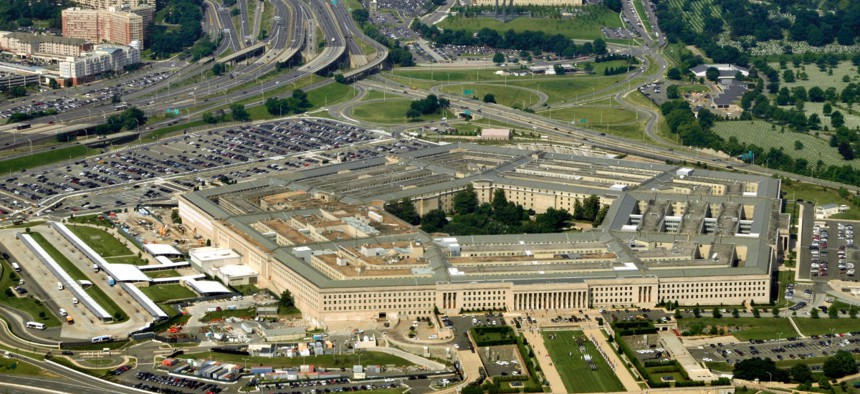Defense Budget Experts Urge Changes to Wartime Funding Account
Former Pentagon comptroller says reform is necessary for long-term planning.
Congress’ reliance on an annual emergency wartime account to fund combat operations in Syria and Iraq has served the nation’s warfighters but done damage to budget clarity and long-term planning, a panel of experts said on Monday at the Brookings Institution.
The next administration will have to decide whether to preserve the Overseas Contingency Operations account as is, more strictly restrict it to wartime needs, or introduce some modifications, said former Pentagon Comptroller Bob Hale, now a senior fellow at Booz Allen Hamilton. Given the “enormous turbulence” in the defense budget since the enactment of budget caps in the 2011 Budget Control Act, the OCO account on the whole has served the Pentagon well, despite criticism that it allows officials to circumvent budget caps and fund items not directly related to the nation’s wars, Hale said.
Ideally, the next administration would boost the department’s base budget by $20 billion to $30 billion and restrict the OCO to battlefield needs, Hale said. “Regrettably, this is not practical in the current budget environment,” he said.
The budget law’s caps on defense and non-defense spending have been valuable for enforcing discipline, but overall spending has been too low, Hale said. What’s really needed, is a realistic, long-term budget deal that funds some of the non-war priorities recently covered by OCO funds. For example, Hale argued in a recent white paper that the Counterterrorism Partnership Fund and European Reassurance Initiative should be moved back to the base budget from the OCO fund.
Hale noted that the Overseas Contingency Operations fund is also important to the State Department. “We’re probably spending not enough on State and too much on defense—not spending enough on prevention of war,” he said.
Panel moderator Michael O’Hanlon, who directs the Brookings foreign policy program, said an overreliance on the OCO makes long-term planning difficult. But if all Congress can do is “skinny down” the OCO, then he favors raising defense spending as high as $650 billion (his new book is titled, The $650 Billion Bargain). He also favors raising non-defense spending, which has come down as a percentage of gross domestic product.
Sequestration Fears
The threat of sequestration under the 2011 Budget Control Act will remain in effect for the next administration, barring congressional action, panelists noted.
Alice Rivlin, a senior fellow in economic studies and former director of the Office of Management and Budget and the Congressional Budget Office, called the 2011 Budget Control Act “a bizarre piece of legislation” because its threat of automatic budget cuts was never meant to take effect. “Revising the act would be a mistake because the act was a mistake,” she said.
Spending on both defense and domestic programs should be based on national security threats and the nation’s needs, Rivlin said. “The current track that spending is on is much too low to invest in the future,” she said.
Maya MacGuineas, president of the Committee for a Responsible Budget, said that lawmakers have for too long relied on short-term gimmicks without addressing the tough choices needed to reduce debt, “which is near record levels.”
“We’re not borrowing for smart investment, which is a reflection of a broken governance system,” she said, noting that the parties refuse to work together even when they agree. “We’ve been governing by default” without updating economic and social policies to “reflect what people are really going through,” she said.








